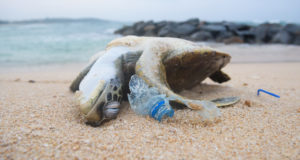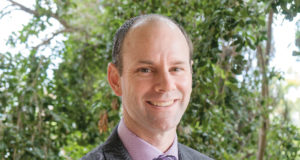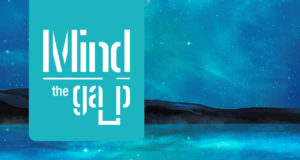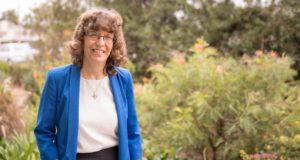Lives ruled by faith and inspired by a love of adventure have their own reward, as Arie and Anneke van Klinken discovered. Dianne Jensen reports.
Arie, 17 years, was picked up outside curfew by Nazi police in Emmen, occupied Holland. A few days later, en route to Gestapo headquarters, he escaped by jumping from the train while it was stationary. The young son of the local pastor hid him in the church roof. Arie remained in hiding for the next two years.
Anneke, 15 years, pretended to be asleep. She could hear the Gestapo searching for her father, concealed in his hiding place between the cupboard and the ceiling below her floor. He was on the list of people in Hoogeveen targeted for public reprisals.
Memories of the Second World War are still powerful for Arie (88 years) and Anneke van Klinken (86 years).
“We saw great courage and integrity in people which had nothing to do with position, rich or poor, Christian or non-Christian. That shaped our lives,” says Anneke.
Seventy-five per cent of the 140 000 Jews in Holland perished over the five years of occupation, and many Dutch people—especially the young—were involved in underground activities such as distributing material and hiding Allied airmen and fugitives.
Like many of his contemporaries, Arie had refused to sign the mandatory papers to identify himself as a non-Jew.
“The underground kept saying, ‘don’t sign’,” explains Anneke. “If everybody signed, the Jews wouldn’t have a hope. But if you did not sign, you were treated like a Jew; that is, you were picked up and taken to the concentration camp. So you had to go into hiding.”
For both young people, their Christian faith underpinned their resistance.
“Faith—that is why you are so against violence, you are so against evil,” says Anneke. “The kingdom of God is such a big thing for me, even when I was young, and I thought, even the tiniest bit that I would be able to do against evil, I will try.”
Decades later and on the other side of the world, these first-hand experiences of brutal occupation would help Arie and Anneke to support other people suffering military repression.
A new world emerges
Like many Dutch people, Arie and Anneke had family links and a cultural connection to Indonesia, which was a Dutch colony until 1949. Towards the end of the war, Arie joined forces in Indonesia to fight against the Japanese occupiers. Soon after, Indonesia claimed independence from the Netherlands, leading to a protracted conflict.
“The government asked the army to maintain position to establish law and order in Indonesia,
so I decided to stay,” says Arie, who quickly became disillusioned. “I thought that we were there to liberate the people, but then I felt that no, we were there to defend the colonial rule.”
The van Klinkens married in 1951, after Arie’s return to Holland. He joined the police force in Rotterdam, and studied law.
But life at home was lacking in adventure for the restless young man. Fascinated by stories of the untamed jungle, in 1956 the young couple left for Dutch New Guinea (later known as Irian Jaya, now West Papua), working on a small island for several years until Arie was appointed crown prosecutor.
Once again they encountered political turmoil. The area was a potent mix of Papuan culture and growing nationalism, the waning power of the Dutch colonial rule, and pressure from Indonesia, which took control in the early 1960s.
But the van Klinkens discovered an affinity with the people, and encountered a young, vibrant church far from their conservative Dutch tradition.
Back in Holland, their longing for a less restrictive society led the van Klinkens and their four children to migrate to Australia in the 1960s. They settled in Brisbane’s inner west and set up a catering business. Two more children were born, and the family settled into their local church.
East Timor connections
News of the Indonesian invasion of East Timor in 1975 shocked Arie, and he began reading about the growth of the Protestant church amid the reports of the brutal repression.
As soon as the East Timor borders were opened in 1989, he visited, along with their son Gerry and his wife Helene, some of the first outsiders to arrive.
“They found in East Timor, great suffering, hunger, and oppression, under Indonesian occupation,” says Anneke. “They counted many graves.”
Church leaders were under surveillance, the people lived in constant fear, and the resistance fighters were holed up in the mountains. Arie, and sometimes Anneke, began making frequent trips, forming relationships with church leaders and delivering assistance where possible.
They understood what the East Timorese were going through.
“We spoke the language, and because of the war we knew how frightening it was for the people, how careful they had to be, and the importance of things like medication,” says Arie.
The couple paid for two ministers to have training in West Timor, and continued to fund others. Their Brisbane home became a respite for some East Timorese church leaders.
For the first few years it was just the two of them, doing what they could.
The price of independence
In 1999, following an overwhelming vote in favour of independence from Indonesia, military-backed militias ran rampant in East Timor. By the time United Nations troops intervened, half a million people had been displaced.
The van Klinkens find it hard to describe the devastation.
“They had very few men left; it was all women and children,” says Anneke. “There were so many kids without parents, or with mothers who could not support them, and the Catholic Church established quite a few orphanages.”
With buildings and services destroyed, education was considered a priority.
“When freedom came the moderator gave me a list of 28 names of people who needed training,” says Arie. “That really made me nervous—how can we find 28 scholarships?”
The cost for each student—including tuition and board—was about $600, so the van Klinkens decided to appeal to their local Uniting Church at Indooroopilly.
“The money just streamed in, and that was the beginning of the scholarship scheme,” says Anneke. “Somehow we got to support all these 28 students, and over the years, hundreds.
“At present the figure is 290 students currently studying at high school, university and as tradesmen.”
A small scholarships committee was established to oversee the scheme, which also helps finance local vocational training programs.
In 2007 the Scholarship Fund amalgamated with the Timor Children’s Foundation, a not-for-profit group that was set up in 2002 by Bob Mitchell.
At home in Brisbane, Arie and Anneke became involved in lay ministry. Anneke worked as a hospital chaplain, and Arie became a prison chaplain after his retirement.
They lent their business expertise to several Indigenous communities including Ernabella, helping with administration in community stores during Christmas holidays. With four children and a dog packed into the car, they travelled to remote areas, sleeping out in parks or beside the roads.
Arie and Anneke have many stories to tell from an adventurous life together, set free to live for others.
For more information visit timorchildren.com
 JourneyOnline
JourneyOnline







